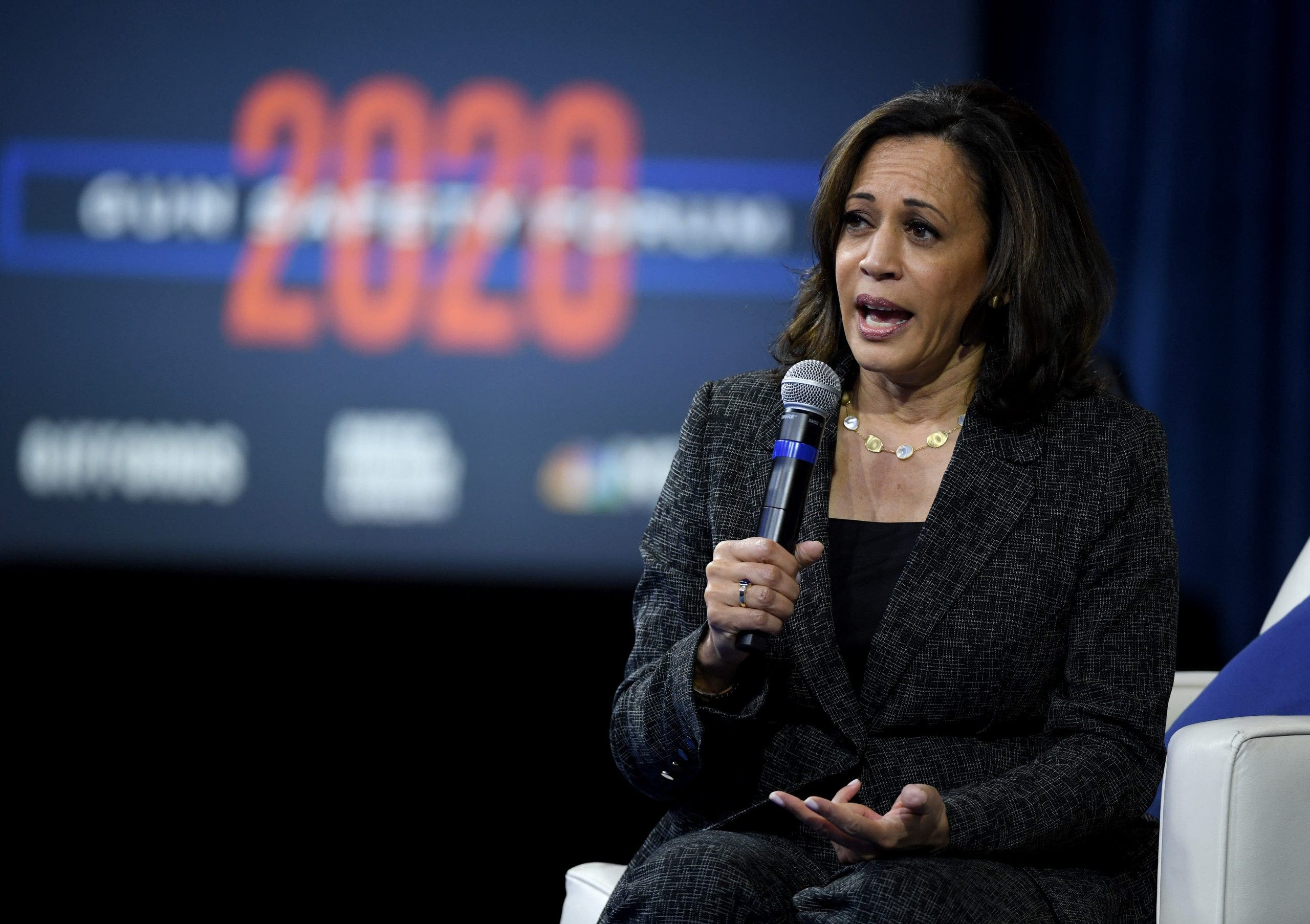Vice President Kamala Harris declined to say whether she supports a commission to study reparations, despite being behind such legislation in Congress.
She suggested Congress should take the lead on studying the history of racism and the potential need for reparations, not the White House.
During a conversation with members of the National Association of Black Journalists (NABJ) Tuesday in Philadelphia, the Democratic presidential nominee said when asked whether she would create sucha committee: “We just need to speak truth about history. In spite of the fact that some people are trying to erase history and try and teach our children otherwise, we need to speak truth about the generational impact of our history, in terms of the generational impact of slavery, the generational impact of of redlining, of Jim Crow law, I could go on and on.”
“I think Congress ultimately will have the ability to do this work,” Harris said.
Vice President Kamala Harris addresses members of the National Association of Black Journalists in Philadelphia, Sept. 17, 2024. (Reuters/Piroschka van de Wouw)
NYC COUNCIL PASSES SLAVERY REPARATIONS LEGISLATION
Racial justice groups and some Democrats have been pushing President Biden for years to establish a national reparations commission by executive order – so far to no avail.
“We ask with no apologies for an executive order to be in place,” the late Rep. Sheila Jackson Lee, D-Texas, said in December 2022. Her milestone legislative proposal was a bill that would have established a commission to study reparations. “I want for once an acceptance of the history, of the journey that African Americans have taken, to be an accepted reality in America.”
Liberal cities and states have launched their own efforts to give reparations to Black Americans. Rep. Cori Bush, D-Mo., introduced a proposal last year to pay $14 trillion to compensate for what she believes are racist government policies that created a wealth gap between White and Black people.
Harris, meanwhile, pivoted to her own proposals she believed would boost African Americans.
“Part of what we can do right now is, for example, what I’m talking about in terms of building an opportunity economy, which is addressing explicitly the obstacles that historically and currently exist, and dealing with them, student loan debt, medical debt, bias and home appraisals. What we need to do in terms of dealing with an issue that I have championed for years, Black maternal mortality, which is the fact that Black women are three to four times more likely to die in connection with childbirth than other women.”
PROTESTS ERUPT AT CALIFORNIA STATE CAPITOL AFTER PAIR OF REPARATIONS BILLS SHELVED
A boy holds a sign calling for reparations on the 106th anniversary of the 1915 Armenian genocide during a protest outside of the Turkish ambassador’s residence in Washington, D.C., on April 24, 2021. (Samuel Corum/AFP via Getty Images)
Democratic presidential nominee and Vice President Kamala Harris answers questions during a gathering of the National Association of Black Journalists in Philadelphia on Sept. 17, 2024. (Reuters/Piroschka van de Wouw)
The vice president was also asked about Black men who are considering voting for former President Trump.
“I think it’s very important to not operate from the assumption that Black men are in anybody’s pocket,” Harris responded.
“Black men are like any other voting group. You gotta earn their vote. So I’m working to earn the vote, not assuming I’m going to have it because I am Black, but because the policies and the perspectives I have understand what we must do to recognize the needs of all communities.”



